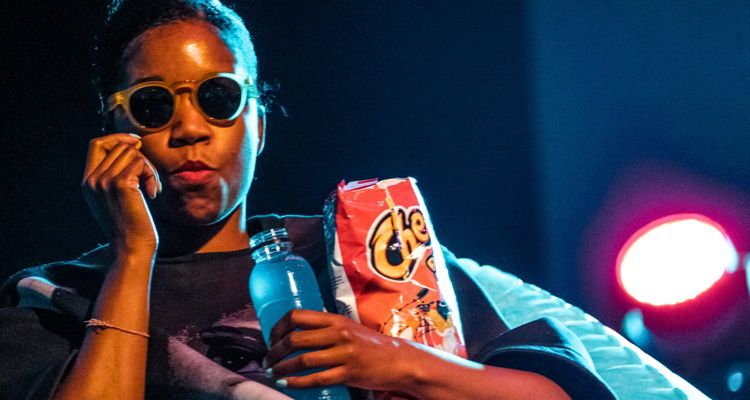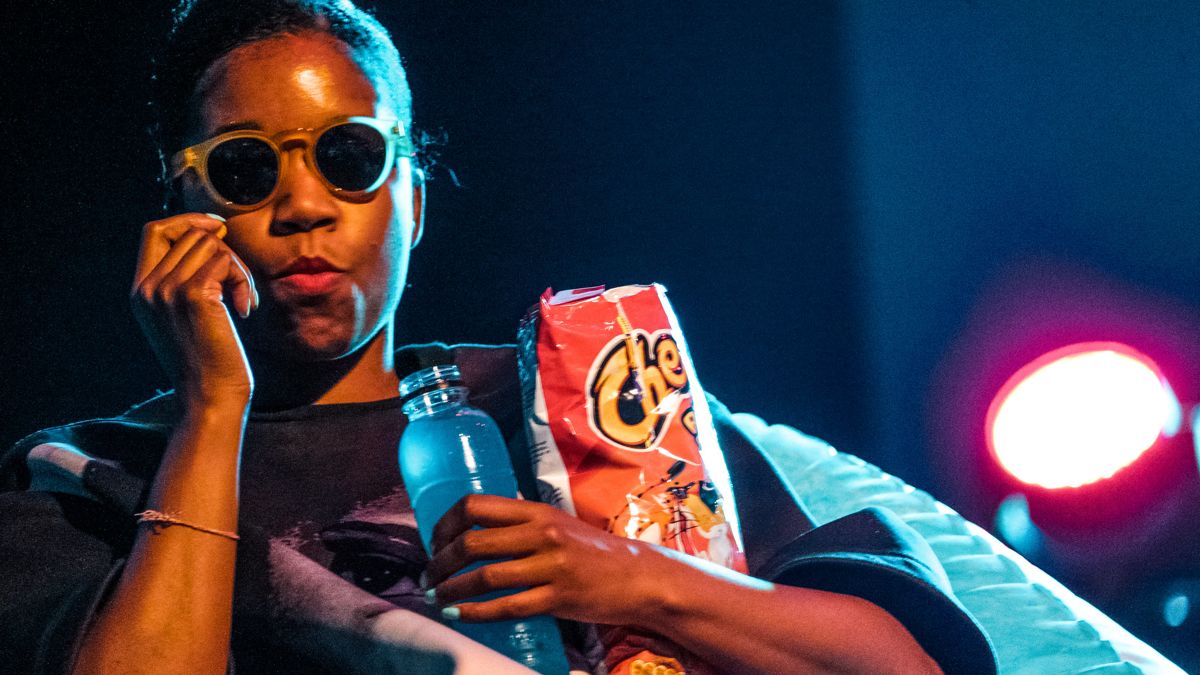
Photo Credit: nudevinyl / CC by 2.0
Santigold on touring: “At my level – somewhere in the middle – it’s f–king rough.”
After the abrupt cancellation of her tour last month, singer-songwriter Santigold was one of the first artists to publicly announce the difficulties associated with touring in the current environment. Recently, she addressed the issues surrounding touring musicians in a rush to return to live events in a post-pandemic world.
Santigold, a 46-year-old mother of three who has appeared on tracks with artists including Drake, David Byrne, and Jay-Z, was initially due to begin a US tour this month in support of her new self-released album, Spirituals. Last month, she explained the abrupt cancellation of her tour, stating she’s “simply unable to make it work” between inflation and competing with more prominent artists for fans’ time and money.
Her post resonated with fellow musicians, such as Swedish singer Lykke Li and British singer Lily Allen, both of whom posted replies.
“I feel you and I feel exactly the same,” read Lykke Li’s reply.
“Fucking hell, it’s so brutal out there,” added Lily Allen. “You’re right, we don’t talk about it enough.”
Since then, Santigold expanded on the topic in a Zoom call with Variety in which she explained that touring “has never been great” for artists at her level and was only ever feasible for those at the top.
“At my level — somewhere in the middle — it’s fucking rough. Even before COVID, the only time it was really profitable (was) when I could anchor tour with a bunch of festivals,” she explained. “And if you get a tour support from a label or other company — I never have — then you’re in debt even more because that’s a loan. Nowadays, even people touring at high levels are taking deals because they can’t make it work either.”
The singer says that even before COVID, she wasn’t making enough money on tours to live on, but artists feel forced to attempt it to maintain relevance.
“When I started as Santigold, I was single, my bills weren’t very high, it was my first time around the world and it was fun. So if I wasn’t making a whole lot of money, it was like, ‘Oh, you’re building a fan base. Let’s go again,’” she says, stating that it was different before she had kids. “I took my two-year-old on the road, then I had twins in 2018, and hit the road the same year! I was on stage four months after I had twins. Why? Because there’s not really another option. If you don’t do it, you’re going to lose relevance (…) you’re going to be out of the public eye for too long.”
Even younger artists suffer from burnout, if not from financial issues or other responsibilities. The “relentless expectations” of the music industry, particularly concerning social media, where artists feel pressure to make themselves constantly accessible.
“You have to constantly be in front of the people, making TikToks and engaging on social media,” Santigold continued. “You’re supposed to be a marketing genius, you have to be constantly accessible instead of making art. I didn’t sign up for that. If art is becoming the side note, then maybe this isn’t what I need to be doing.”
While she takes a break from music as her career, Santigold says that because music lifts her, she will “always be making records.”
“I’m about to do a book deal, I have a podcast that I’ve already done the first season of, I’ve got a bunch of other projects that I’ve been pushing off,” she says. “I really couldn’t tell you where money would come from if I was just going to focus on being a musician right now.”

